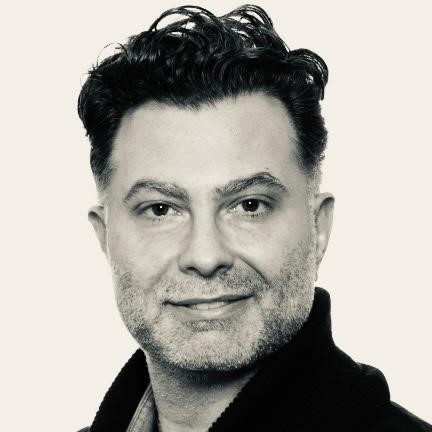Nature Communications publication: A new type of specialized epithelial subtype of cells may hold the key to overcoming resistance to prostate cancer treatments

Shared senior author
A team of scientists has made a groundbreaking discovery that could explain why certain prostate cancer therapies are less effective than expected. With 5,000 Norwegian men diagnosed with the disease annually, resulting in roughly 1,000 deaths every year, a major clinical objective is to prevent the spread of cancer and recurrence.
Employing advanced technologies that maintain cells in their native spatial context, the researchers were able to observe intricate cellular interactions within the tumor microenvironment. This analysis involved 120 patients, identifying a distinct kind of epithelial cells, referred to as club-like cells, which are often found in regions of the tumor characterized by heightened immunosuppressive activity.
Immunosuppression hampers the immune system's ability to eradicate cancer cells. Club-like cells may release substances that attract myeloid-derived suppressor cells to the tumor site and cause such immunesuppression. This not only causes a barrier to existing treatments but may also promote the spread of the disease.
This pivotal study involved collaboration with international partners from the Oslo University Hospital (Insitute for Cancer Research), The Prostate Cancer Reseach Center (Tampere University in Finland), the Norwegian University of Science and Technology (Trondheim), University College London, and KU Leuven. Directed by Dr. Alfonso Urbanucci (working both in Oslo and Tampere), Professor Matti Nykter, and lead author Antti Kiviaho of the Faculty of Medicine and Health Technology at Tampere University, the research received support from several notable organizations, including the Research Council of Finland, Cancer Foundation Finland, and the Norwegian Cancer Society (Kreftforeningen).
The study was published in Nature Communications -scientific journal on November 16th 2024:
Kiviaho A, Eerola SK, Kallio HML, Andersen MK, Hoikka M, Tiihonen AM, Salonen I, Spotbeen X, Giesen A, Parker CTA, Taavitsainen S, Hantula O, Marttinen M, Hermelo I, Ismail M, Midtbust E, Wess M, Devlies W, Sharma A, Krossa S, Häkkinen T, Afyounian E, Vandereyken K, Kint S, Kesseli J et al. (2024)
Single cell and spatial transcriptomics highlight the interaction of club-like cells with immunosuppressive myeloid cells in prostate cancer
Nat Commun, 15 (1), 9949
DOI 10.1038/s41467-024-54364-1, PubMed 39550375
Main Scientific Points of the Study:
1. Role of Club-like Cells in Prostate Cancer: The study identifies club-like cells as a key epithelial cell subtype in the prostate tumor microenvironment (TME).
These cells act as an interface between the prostate and the immune system, displaying a senescence-associated secretory phenotype and being linked to increased polymorpho-nuclear myeloid-derived suppressor cell (PMN-MDSC) activity.
Their presence is associated with myeloid inflammation and resistance to androgen deprivation therapy (ADT).
2. Spatial and Single-cell Transcriptomics: The research employs single-cell RNA-sequencing and spatial transcriptomics to create a comprehensive transcriptomic landscape of the prostate TME from 120 patient samples.
This approach helps in understanding the cellular composition and interactions within the TME, highlighting the heterogeneity and complexity of prostate cancer.
3. Impact of Androgen Deprivation Therapy (ADT): The study investigates the effects of ADT on gene expression in different epithelial cell regions.
It finds that ADT promotes basal and club-like epithelial phenotypes, with decreased expression of androgen receptor-regulated genes in the Tumor and Luminal regions post-treatment.
4. Immunosuppressive Environment: The presence of club-like cells is strongly associated with PMN-MDSC infiltration and immunosuppressive activity in the prostate TME.
This suggests that club-like cells contribute to the immunosuppressive environment, which may play a role in treatment resistance and cancer progression.
Links:
Dr Alfonso Urbanucci is project group leader of the Genomic Regulation for Precision Cancer Medicine Lab at the Oslo University Hospital, Institute for Cancer Research
Prostate Cancer Research Center at Tampere University
The Prostate Cancer Research Center at OUH
Prostate Cancer Patients Organization (PROFO)
From the OUH blog "Ekspertsykehuset" (in Norwegian):
Ny forskning åpner for ny forståelse ved behandling av prostatakreft
